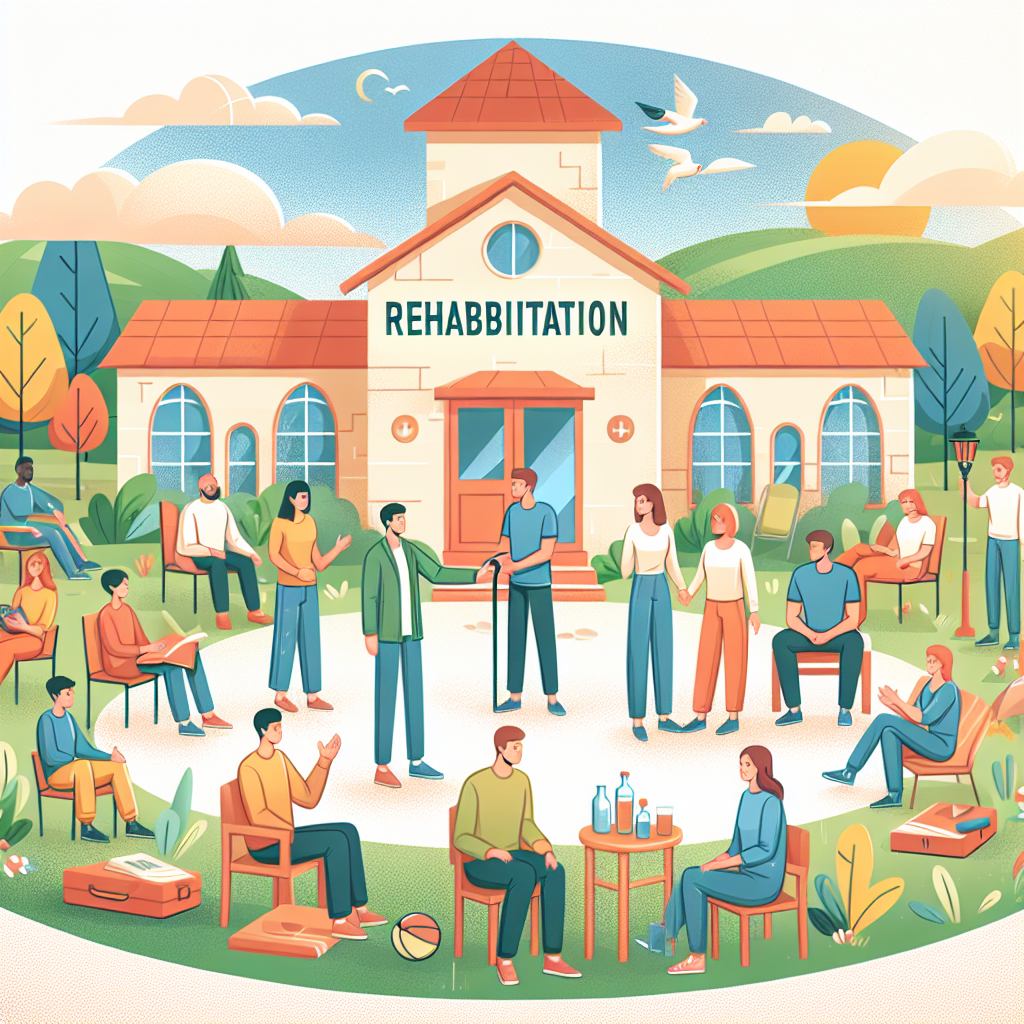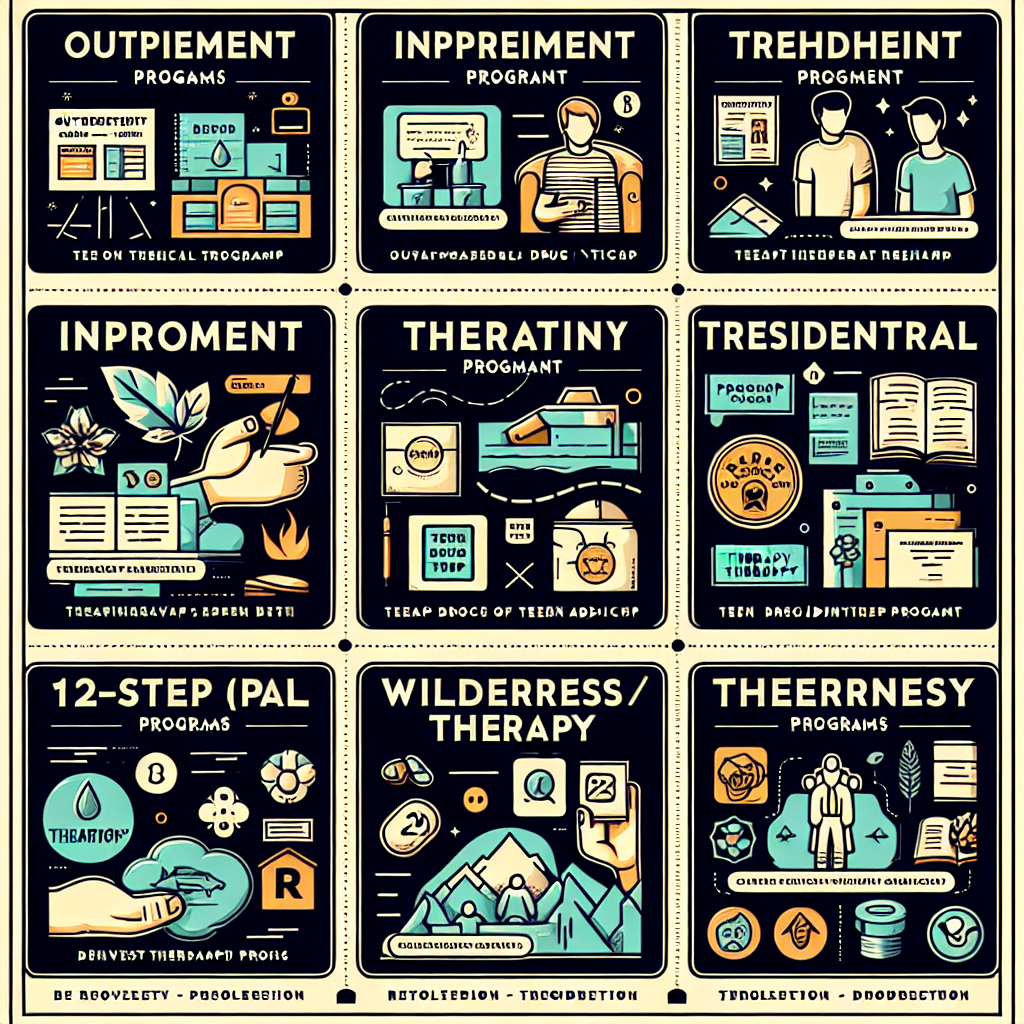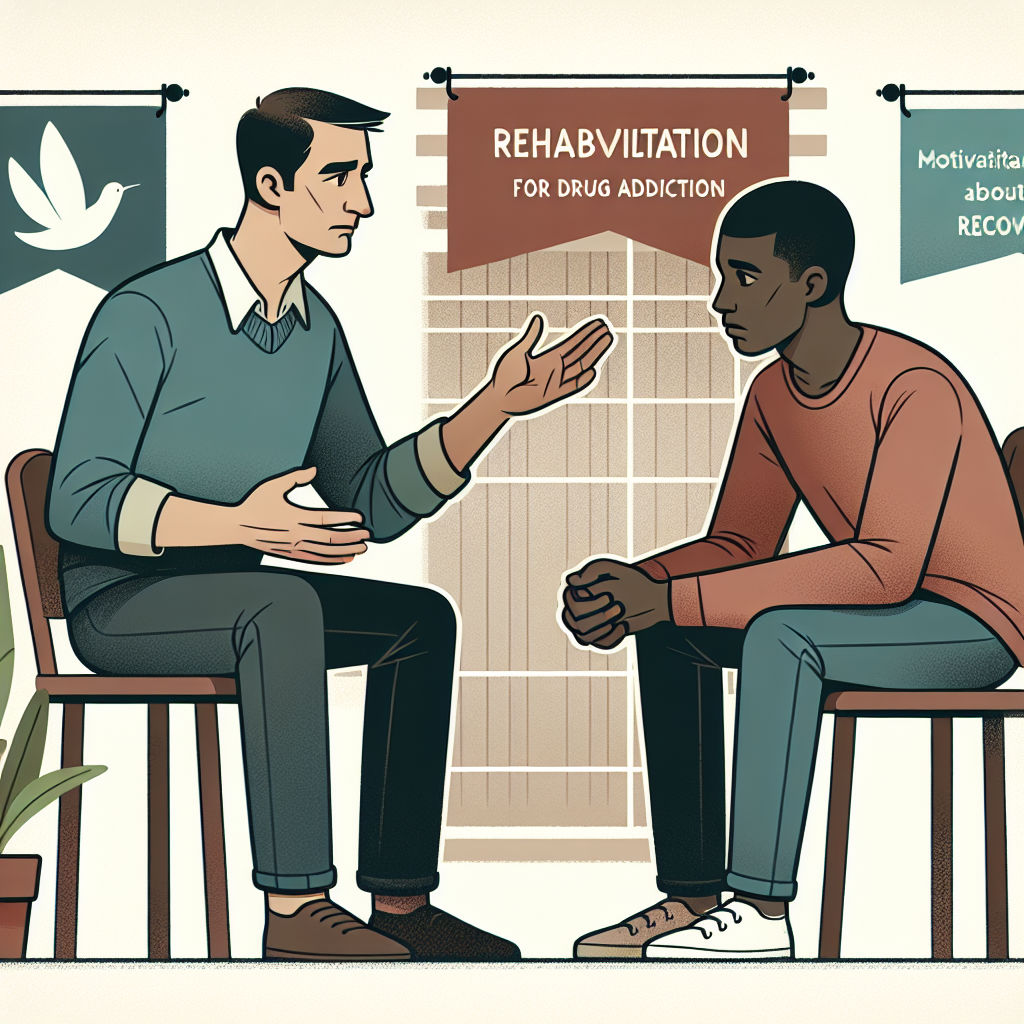-
Table of Contents

“Empowering Teens to Overcome Alcohol Abuse and Embrace a Brighter Future”
Introduction
Rehabilitation for teenagers battling alcohol abuse is a structured and supportive process designed to help young individuals overcome their dependency on alcohol and develop healthier coping mechanisms. This journey typically begins with a comprehensive assessment to understand the extent of the addiction and any co-occurring mental health issues. Treatment plans are then tailored to meet the specific needs of the teenager, often incorporating a combination of medical detoxification, individual and group therapy, family counseling, and educational support. The goal is to address the root causes of the addiction, promote long-term recovery, and equip teenagers with the skills and resilience needed to lead a sober and fulfilling life. Throughout the rehab process, a multidisciplinary team of healthcare professionals, including doctors, therapists, and counselors, work collaboratively to provide a safe and nurturing environment that fosters healing and personal growth.
Understanding the Rehabilitation Process for Teenagers Battling Alcohol Abuse
Understanding the rehabilitation process for teenagers battling alcohol abuse is crucial for parents, guardians, and the teenagers themselves. The journey to recovery is often fraught with challenges, but it is also filled with opportunities for growth, healing, and transformation. When a teenager enters rehab, the first step typically involves a comprehensive assessment. This evaluation helps to identify the severity of the addiction, any co-occurring mental health issues, and the specific needs of the individual. By understanding these factors, a tailored treatment plan can be developed, ensuring that the teenager receives the most effective care possible.
Following the assessment, detoxification may be necessary. This process involves the safe removal of alcohol from the teenager’s system under medical supervision. Detox can be physically and emotionally taxing, but it is a critical step in the recovery process. Medical professionals are on hand to manage withdrawal symptoms and provide support, ensuring the teenager’s safety and comfort. Once detox is complete, the focus shifts to therapy and counseling, which are the cornerstones of rehabilitation.
Therapy sessions, both individual and group, play a pivotal role in helping teenagers understand the root causes of their alcohol abuse. Through these sessions, they can explore their emotions, develop coping strategies, and build resilience. Individual therapy offers a private space for teenagers to discuss their personal struggles and receive tailored guidance from a therapist. On the other hand, group therapy provides a sense of community and shared experience, allowing teenagers to connect with peers who are facing similar challenges. This sense of camaraderie can be incredibly empowering and can help reduce feelings of isolation.
In addition to traditional therapy, many rehab programs incorporate holistic approaches to support overall well-being. Activities such as yoga, meditation, art therapy, and outdoor adventures can help teenagers reconnect with themselves and discover new, healthy ways to cope with stress and emotions. These activities not only promote physical health but also foster mental and emotional healing.
Family involvement is another critical component of the rehabilitation process. Family therapy sessions can help repair strained relationships, improve communication, and create a supportive home environment. By involving the family, the teenager’s support system is strengthened, which can significantly enhance the chances of long-term recovery. Parents and guardians are also educated about addiction and recovery, equipping them with the tools to support their teenager effectively.
Education is an integral part of rehab for teenagers. Many programs ensure that academic needs are met, allowing teenagers to continue their studies while receiving treatment. This approach helps maintain a sense of normalcy and ensures that their future opportunities are not compromised. Balancing education with recovery can be challenging, but it is essential for the teenager’s overall development and self-esteem.
As the rehabilitation process progresses, the focus gradually shifts to preparing the teenager for life after rehab. Developing a robust aftercare plan is crucial to prevent relapse and ensure sustained recovery. This plan may include ongoing therapy, support group meetings, and strategies for managing triggers and stressors. By equipping teenagers with the tools and resources they need, rehab programs aim to empower them to lead healthy, fulfilling lives.
In conclusion, the rehabilitation process for teenagers battling alcohol abuse is a multifaceted journey that addresses physical, emotional, and psychological needs. While the path to recovery can be challenging, it is also filled with hope and the promise of a brighter future. With the right support, guidance, and determination, teenagers can overcome their struggles with alcohol and embark on a new chapter of their lives, free from the grip of addiction.
Key Benefits of Rehab Programs for Teenagers Struggling with Alcohol Addiction
Rehabilitation programs for teenagers struggling with alcohol addiction offer a lifeline to young individuals and their families, providing a structured environment where healing and growth can take place. One of the key benefits of these programs is the comprehensive approach they take to address the multifaceted nature of addiction. Unlike adults, teenagers are still in the critical stages of emotional, psychological, and physical development, making it essential for rehab programs to tailor their strategies to meet these unique needs.
First and foremost, rehab programs for teenagers provide a safe and supportive environment where they can begin to understand the root causes of their addiction. This often involves a combination of individual therapy, group counseling, and family therapy. Individual therapy allows teenagers to explore their personal struggles and triggers in a confidential setting, while group counseling offers peer support and the opportunity to learn from others who are facing similar challenges. Family therapy is particularly crucial, as it helps to mend strained relationships and fosters a supportive home environment, which is essential for long-term recovery.
Moreover, these programs emphasize the importance of education and skill-building. Teenagers are taught about the effects of alcohol on their developing brains and bodies, which can be a powerful motivator for change. They also learn coping mechanisms and life skills that are essential for maintaining sobriety. For instance, they might engage in activities that promote healthy living, such as exercise, nutrition, and mindfulness practices. These skills not only aid in recovery but also contribute to overall well-being, helping teenagers to build a foundation for a healthier future.
Another significant benefit of rehab programs for teenagers is the focus on academic and vocational support. Addiction often disrupts a teenager’s education, leading to poor academic performance and a lack of direction. Rehab programs typically offer educational support to help teenagers catch up on missed schoolwork and develop a plan for their academic future. This might include tutoring, GED preparation, or assistance with college applications. By addressing these educational needs, rehab programs help teenagers to regain a sense of purpose and direction, which is vital for their self-esteem and long-term success.
Furthermore, rehab programs for teenagers often incorporate recreational and creative therapies, such as art, music, and sports. These activities provide a healthy outlet for emotions and stress, allowing teenagers to express themselves in non-destructive ways. They also help to build confidence and social skills, which are crucial for reintegrating into everyday life after rehab. Engaging in these activities can be particularly inspiring for teenagers, as they discover new passions and interests that can replace the void left by alcohol.
In addition to these therapeutic and educational components, rehab programs for teenagers also place a strong emphasis on aftercare planning. Recovery is a lifelong journey, and the transition from rehab back to everyday life can be challenging. Effective aftercare plans might include ongoing therapy, support groups, and regular check-ins with counselors. These resources provide continued support and accountability, helping teenagers to navigate the ups and downs of early sobriety.
Ultimately, the key benefits of rehab programs for teenagers struggling with alcohol addiction lie in their holistic and individualized approach. By addressing the emotional, psychological, physical, and educational needs of teenagers, these programs offer a comprehensive path to recovery. They not only help teenagers to overcome their addiction but also empower them to build a brighter, healthier future. Through the support and guidance provided by these programs, teenagers can find hope and inspiration, realizing that a life free from alcohol is not only possible but also filled with endless possibilities.
Q&A
1. **What types of therapies are commonly used in rehab for teenagers battling alcohol abuse?**
– Common therapies include cognitive-behavioral therapy (CBT), family therapy, group therapy, and individual counseling.
2. **What is the typical duration of a rehab program for teenagers with alcohol abuse issues?**
– The typical duration can range from 30 to 90 days, depending on the severity of the addiction and the specific needs of the teenager.
Conclusion
Rehab for teenagers battling alcohol abuse typically involves a comprehensive approach that includes medical detoxification, individual and group therapy, family counseling, educational support, and aftercare planning. The goal is to address both the physical and psychological aspects of addiction, promote healthy coping mechanisms, and support long-term recovery. Teens can expect a structured environment with professional guidance, peer support, and a focus on building a sober lifestyle.



